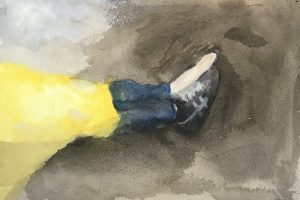Most discussion of retirement in Australia focuses on income, but retirees also have to decide what they will do with the 20 to 30 or more years they will live post-work, writes Griff Foley.
Unfortunately, this vital aspect of retirement gets little attention.
As a result many older people are not using their time as productively and satisfyingly as they might, and younger Australians often see retirees as an economic burden.
My own experience and that of many people I know is that retirement presents an opportunity for a full, rich life.
My working life was busy and satisfying – but it was also all-encompassing and at times exhausting.
Since retirement in 2000 I have had led a more balanced life, spending more time with family and friends and having a rich and varied cultural and recreational life.
I also have time to think, and to contribute to community activities. In a social sense, this might be the most important aspect of retirement.
In our working lives we are absorbed in our jobs and in child-rearing. This is more the case today than ever. People work longer hours, and many parents spend a lot of time running their children to and from school and other activities.
One result of this is that membership of community organisations like Rotary, Lions and Apex has declined.
Busy work lives also combine with the ubiquity of electronic and social media, political spin, advertising and consumerism to erode serious public discussion of matters crucial to our present and future wellbeing.
Serious public deliberation and policy making on issues like climate change, industry policy, health and education has virtually disappeared, crowded out by the the 24-hour news cycle and a general trivialisation of news and current affairs.
In Australia and elsewhere in the 19th and 20th centuries, social action created universal public school education, adult education, public libraries and hence, an informed citizenry.
Since World War II there has been an alarming dumbing down of our public culture. It is not an exaggeration to say that today many Australians are both ill-informed and supremely manipulable.
Seen from this angle, the retirement years present an educational opportunity. Freed from work and other obligations, older Australians can learn through travel, cultural activities, conversation and courses.
Starting in France in 1973, a self-help style of seniors’ adult education, the University of the Third Age or U3A, spread to other countries including Australia – this model recognises that retired people have a lifetime of experience and, collectively, a vast amount of knowledge. This provides the basis for courses led by group members with specialist knowledge.
Newcastle U3A was established in 1990 and now offers 60 courses a year in a wide range of subjects. Students pay an annual fee of $50 which entitles them to attend as many courses as they like. All U3A work is voluntary, including the development, teaching and administration of courses.
Griff Foley teaches at Newcastle U3A. He was formerly associate professor of adult education at the University of Technology, Sydney.























Add Comment